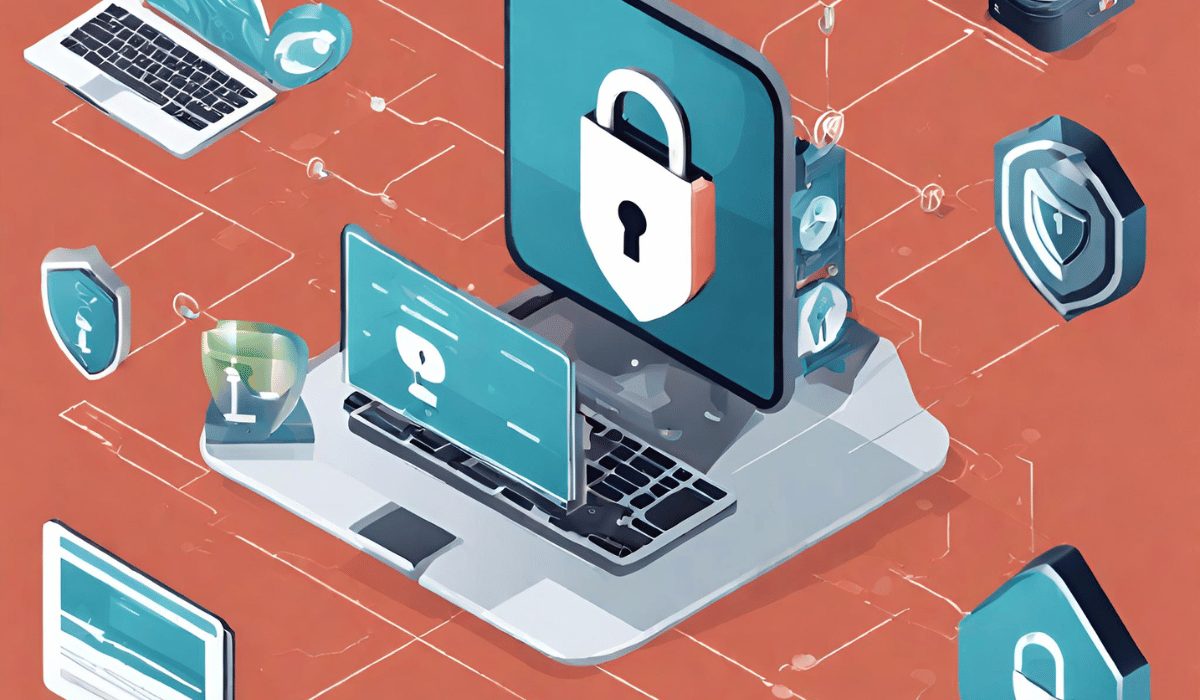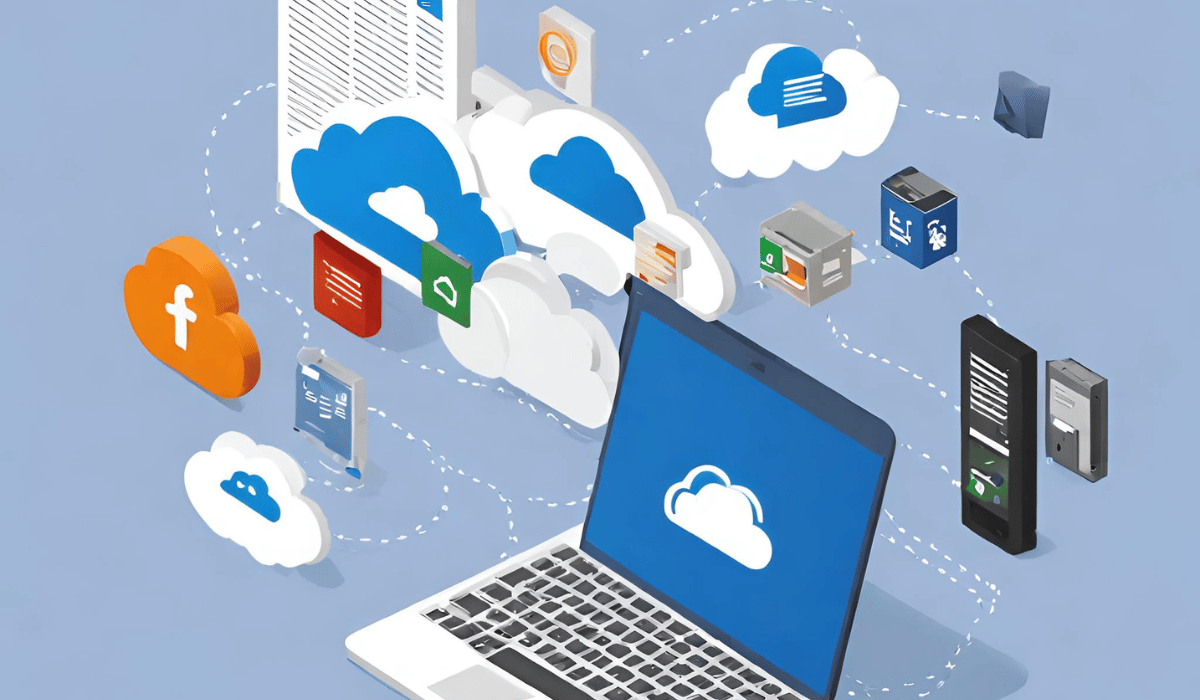Explanation of OneDrive and its Features
OneDrive is a cloud-based storage service provided by Microsoft that allows users to store and access their files from anywhere with an internet connection. Here are some of its features:
1. File storage: OneDrive provides users with a secure and reliable place to store their files, including documents, photos, videos, and music.
2. File sharing: OneDrive allows users to share files and folders with others, making collaboration and teamwork easier.
3. Automatic backup: OneDrive automatically backs up files and folders.
Importance of Data Security and Encryption

Data security and encryption are crucial in today’s digital age. With the increasing amount of data being stored and shared online, it’s important to ensure that sensitive information is protected from unauthorized access. One of the benefits of using OneDrive is that it provides users with a secure and reliable place to store their files. OneDrive uses encryption to protect data both in transit and at rest, ensuring that files are kept safe from prying eyes.
Understanding OneDrive Encryption
OneDrive uses two types of encryption to protect user data. The first is SSL/TLS encryption, which is used to encrypt data in transit. This means that when a user uploads or downloads a file from OneDrive, the data is encrypted as it travels over the internet, making it difficult for anyone to intercept and read the data. The second type of encryption used by OneDrive is BitLocker encryption, which is used to encrypt data at rest. BitLocker encryption ensures that files stored on OneDrive
How OneDrive Uses Encryption to Protect User Data?
OneDrive uses two types of encryption to protect user data: SSL/TLS encryption and BitLocker encryption.SSL/TLS encryption is used to encrypt data in transit, meaning that when a user uploads or downloads a file from OneDrive, the data is encrypted as it travels over the internet. This makes it difficult for anyone to intercept and read the data.
BitLocker encryption, on the other hand, is used to encrypt data at rest. This means that files stored on OneDrive are encrypted and protected.
Encryption Levels and Methods Used by OneDrive
OneDrive uses industry-standard encryption methods and levels to protect user data. For SSL/TLS encryption, OneDrive uses 256-bit encryption, which is considered to be one of the most secure encryption methods available. For BitLocker encryption, OneDrive uses 128-bit encryption, which is also a very secure method. Additionally, OneDrive uses multi-factor authentication to further protect user accounts. This means that users need to provide two forms of identification to access their accounts, such as a password and a verification.
End-to-End Encryption in OneDrive
Currently, OneDrive does not offer end-to-end encryption for user data. End-to-end encryption is a method of encryption where only the sender and recipient can read the data, and not even the service provider has access to it. However, OneDrive does offer strong encryption methods for data in transit and at rest, as mentioned earlier.
OneDrive Personal Vault Encryption
OneDrive Personal Vault is a feature that offers an extra layer of encryption for sensitive files and documents. It uses BitLocker encryption to protect files both in transit and at rest. In addition, it requires two forms of identification to access the vault, such as a password and a verification code sent to a trusted device. This provides an added level of security for users who need to store confidential information in the cloud.
Way Personal Vault Encryption Work
Personal Vault encryption works by using BitLocker encryption to protect files both in transit and at rest. BitLocker is a full-disk encryption feature that is built into Windows operating systems, and it uses AES encryption to protect data. When a user adds a file to their Vault, it is automatically encrypted using BitLocker. This means that the file is scrambled and unreadable to anyone who does not have the encryption key.
Is Personal Vault Encryption Secure?
Yes, Personal Vault encryption is secure. BitLocker encryption is a widely trusted encryption technology that is used by many organizations to protect sensitive data. Additionally, Personal Vault also includes additional security features such as two-factor authentication and automatic locking after a period of inactivity to further enhance the security of the encrypted files. However, it’s important to note that no encryption method is 100% foolproof, and it’s always a good practice to regularly back up important files and use strong passwords to further protect your data.
OneDrive Encryption for Business
OneDrive also offers encryption for business users. OneDrive for Business includes encryption both in transit and at rest, meaning that data is encrypted when it is being transferred over the internet and when it is stored on Microsoft’s servers. Additionally, business users can also set up their encryption keys to further enhance security and control over their data. OneDrive for Business also includes features such as data loss prevention and eDiscovery to help businesses comply with regulations and protect sensitive information.
Differences between OneDrive Personal and OneDrive for Business

OneDrive Personal and OneDrive for Business are two separate products offered by Microsoft, each with its own set of features and target audience. OneDrive Personal is designed for individuals and is included with a personal Microsoft account. It offers up to 5GB of free storage and allows users to store and share personal files such as photos, videos, and documents. OneDrive Personal also includes features such as automatic camera roll backup and integration with other Microsoft products like Office Online.
On the other hand, OneDrive for Business is designed for organizations and is included with Office 365 subscriptions. It offers significantly more storage space than OneDrive Personal and allows users to store and share business-related files such as documents, presentations, and spreadsheets. OneDrive for Business also includes advanced security features and collaboration tools such as co-authoring and version history.
Overall, while both products share some similarities, they are targeted towards different audiences and offer different sets of features to meet their respective needs.
OneDrive vs Other Cloud Storage Services

When comparing OneDrive to other cloud storage services, there are a few key factors to consider such as storage capacity, pricing, and additional features.
Google Drive, for example, offers a similar amount of free storage as OneDrive, but their paid plans may be more affordable for those who need more space. Dropbox is another popular option that offers a range of plans with varying levels of storage and features.
OneDrive Encryption and Privacy Concerns
When it comes to encryption and privacy, OneDrive has implemented several measures to ensure the security of its users’ data. All files and folders stored on OneDrive are encrypted both in transit and at rest, which means that they are protected from unauthorized access.OneDrive also offers two-factor authentication, which adds an extra layer of security to users’ accounts. This feature requires users to enter a code sent to their phone or email in addition to their password when logging in.
Conclusion
In conclusion, OneDrive takes the security and privacy of its users’ data seriously by implementing encryption measures and two-factor authentication. This provides peace of mind for users who want to ensure that their files and folders are protected from unauthorized access.
